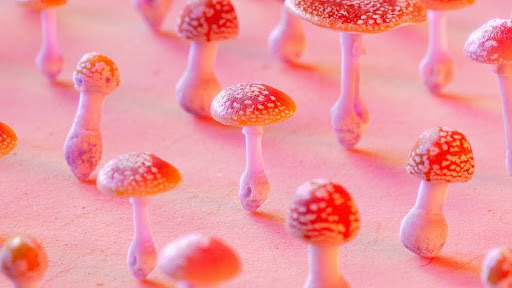The Rise of Microdosing
In the landscape of mental health and wellness, an intriguing practice has taken root—microdosing psychedelics, with a notable focus on psilocybin mushrooms. This method involves taking minuscule, non-hallucinogenic doses of psychedelics, believed to subtly enhance cognitive functions, emotional balance, and creativity. Unlike the full-blown psychedelic experiences that define traditional use, microdosing aims for an ‘under the radar’ effect, enhancing well-being without disrupting normal functioning.
Scientific Inquiry and Anecdotal Evidence
A blend of anecdotal accounts and scientific research forms the backbone of support for microdosing. Individuals report marked improvements in mental health conditions such as anxiety, depression, and PTSD, attributing these changes to their microdosing regimen. Though empirical research is in its nascent stages, preliminary studies suggest potential benefits, including increased neuroplasticity, mood stabilization, and cognitive flexibility. Despite these promising avenues, researchers caution that more extensive, controlled studies are necessary to fully understand the implications, benefits, and risks of microdosing.
Legal and Ethical Considerations
The practice of microdosing navigates a complex legal landscape. In the United States, psilocybin remains a Schedule I substance at the federal level, though certain cities have decriminalized its possession and use. This legal dichotomy raises questions about accessibility, regulation, and the future of psychedelic therapy. Ethical considerations also come into play, as the push for decriminalization and medical acceptance of psychedelics must balance public health concerns with individual rights to wellness and therapeutic exploration.
Functional Mushrooms: Beyond Psychedelics
Parallel to the interest in psychedelic microdosing is the growing popularity of functional mushrooms in the wellness sector. Functional mushrooms, such as Lion’s Mane, Reishi, and Cordyceps, are known for their health-enhancing properties without the psychoactive effects of their psilocybin-containing counterparts. These mushrooms have been incorporated into a variety of nutritional supplements and wellness products, touted for benefits ranging from immune support to cognitive enhancement and stress reduction.
Companies like Zylo Nutrition are pioneering the integration of functional mushrooms into mainstream health products, offering mushroom gummies and supplements that harness these natural benefits. This trend signifies a broader acceptance and appreciation of mushrooms’ role in health, distinguishing between the distinct uses and benefits of psychedelic and functional varieties.
Personal Stories and Community Perspectives
The narrative of microdosing is rich with personal stories of transformation and discovery. Individuals describe subtle yet significant shifts in their perspective, emotional health, and daily functioning, often emphasizing the importance of controlled dosage and mindful practice. These testimonials offer a window into the potential of psychedelics to complement traditional mental health treatments and wellness practices.
Community forums and support groups have emerged as crucial spaces for sharing experiences, advice, and research, fostering a sense of solidarity and collective exploration. The exchange of knowledge within these communities highlights the diverse approaches to microdosing, underscoring the personalized nature of the practice and the importance of informed, respectful engagement with psychedelics.
The Path Forward
The evolving conversation around microdosing mushrooms and the utilization of functional mushrooms in wellness practices points to a broader cultural and scientific reevaluation of psychedelics. As research progresses and societal attitudes continue to shift, the potential for these substances to contribute to mental health and wellness becomes increasingly evident.
The journey toward understanding and integrating the benefits of mushrooms, both psychedelic and functional, into wellness practices and healthcare is ongoing. It involves navigating scientific, legal, and ethical landscapes while prioritizing safety, efficacy, and accessibility. As this exploration unfolds, the promise of mushrooms as agents of wellness and transformation remains a compelling narrative, indicative of a growing appreciation for the natural world’s potential to foster healing and growth.
In conclusion, whether through the careful, intentional practice of microdosing psychedelics for mental health benefits or the incorporation of functional mushrooms into daily wellness routines, the interest in mushrooms spans a continuum of health and wellness applications. This burgeoning field represents a confluence of ancient wisdom and modern science, offering new pathways for understanding and enhancing human health and well-being.





